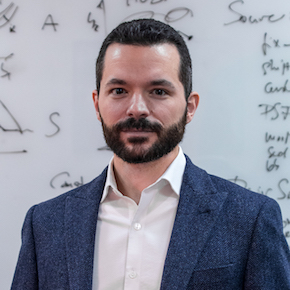I'm Assistant Professor of Statistical Astronomy at Princeton University's Department of Astrophysical Sciences and the Center for Statistics and Machine Learning. I lead the Princeton Astro Data Lab, where we develop new algorithms to solve problems that hold back astronomy, and the Dynamical Learning Lab, where we model complex systems, from nature to neural networks.
I seek to optimally extract information about a process from messy observations of that process. Messy can mean noisy, incomplete, censored, glitchy, heavily contaminated, and often all of the above. How? By assuming that physics works, even though any theoretical model is incomplete. My group therefore creates novel techniques by combining physical principles with deep learning. We develop methods for signal separation, data fusion, fast inference, and outlier detection for large astronomical surveys. I'm funded by NSF and NASA to develop joint analysis methods for ground-based and space-based images (between Rubin, Euclid, and Roman); by the Keck Foundation to discover Earth-like exoplanets; and by Schmidt Sciences to optimize the utilization of spectra for PFS.
My research on physics-ML hybrids applies to remote sensing, environmental sensing, and experimental devices. For the NSF-funded HydroGEN project, I lead the method development of a physics-based machine learning platform for hydrologic scenario generation to predict droughts, wildfire conditions, and the availability of drinking water for the entire continental United States.
For Students
If you're already at Princeton: I usually have projects for undergraduate or graduate students, so come talk to me.
As PhD applicant, please directly apply to the department. After you have been accepted, I'm happy to talk about projects.



